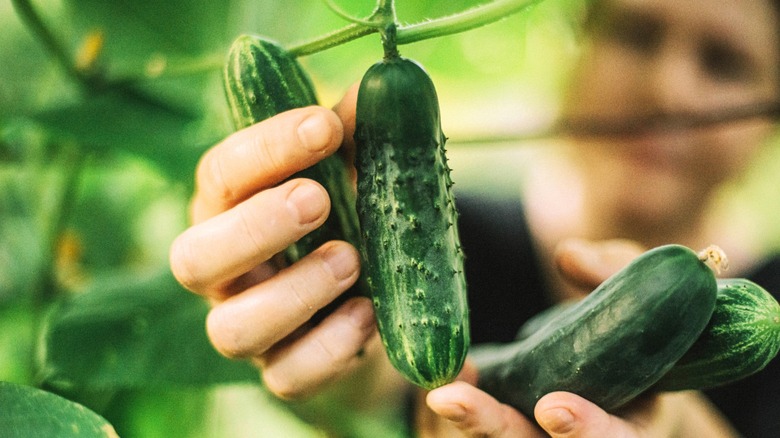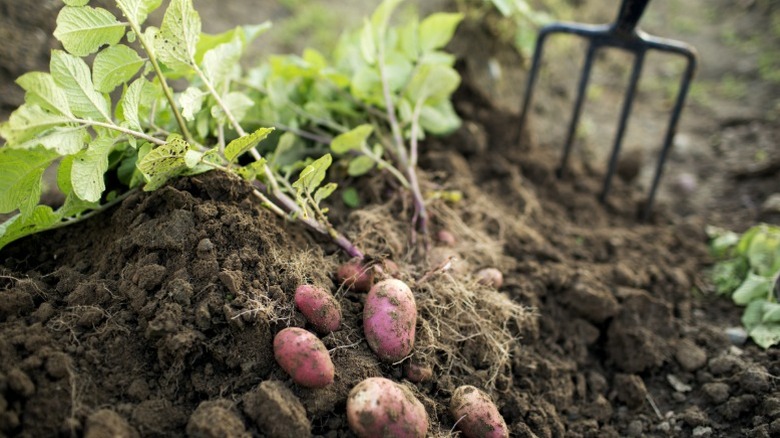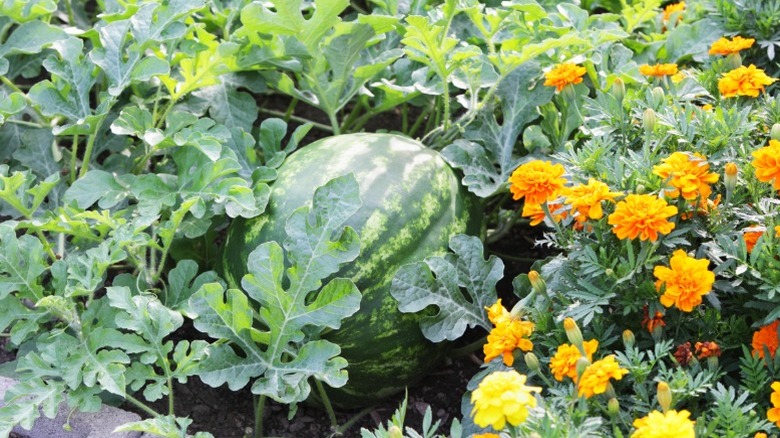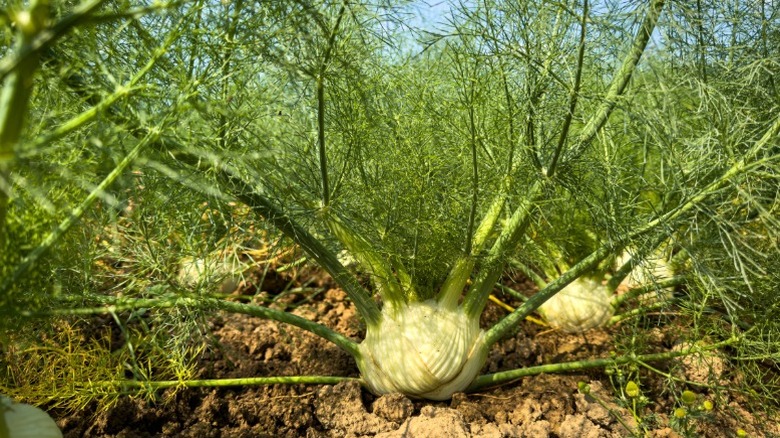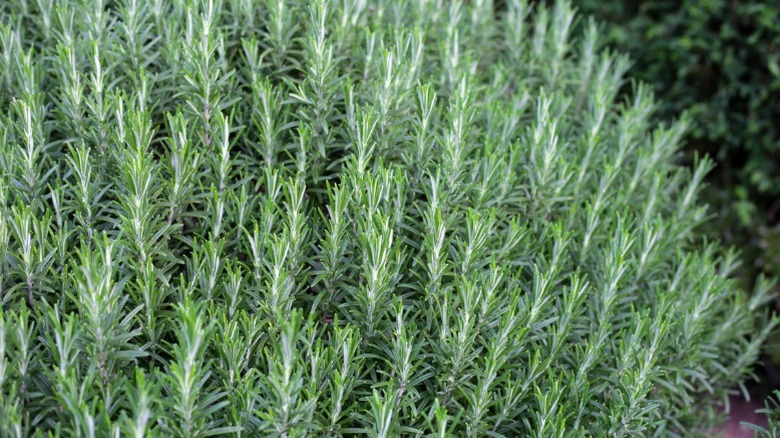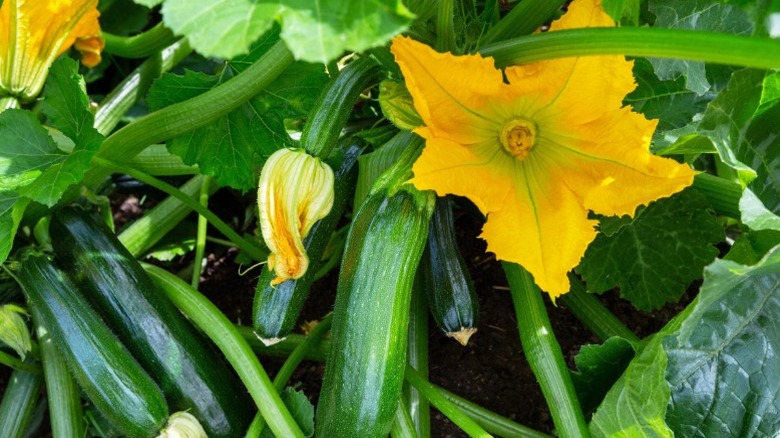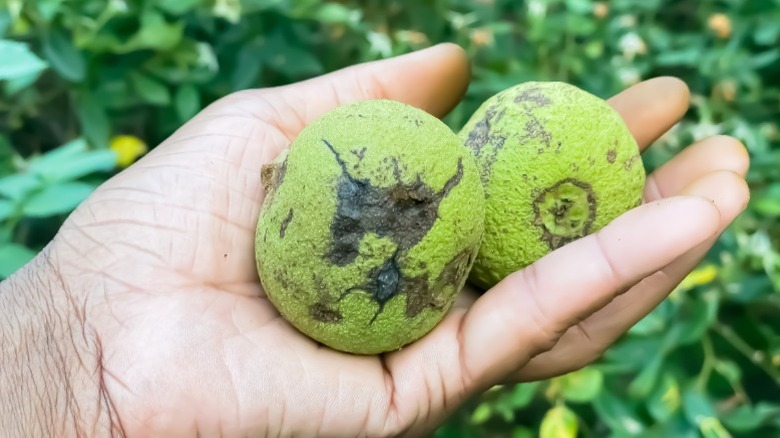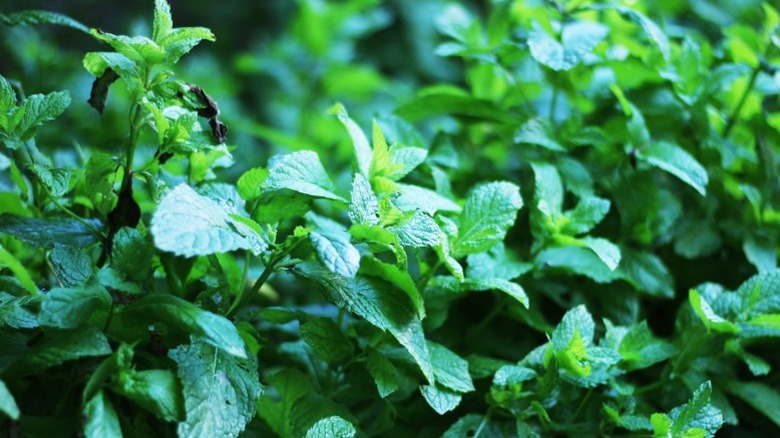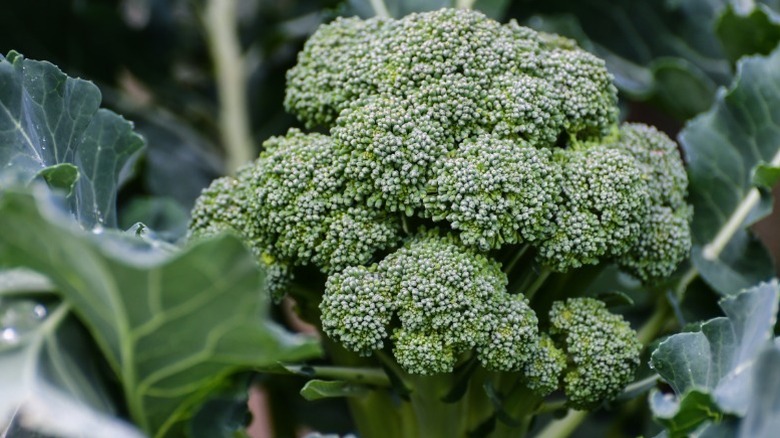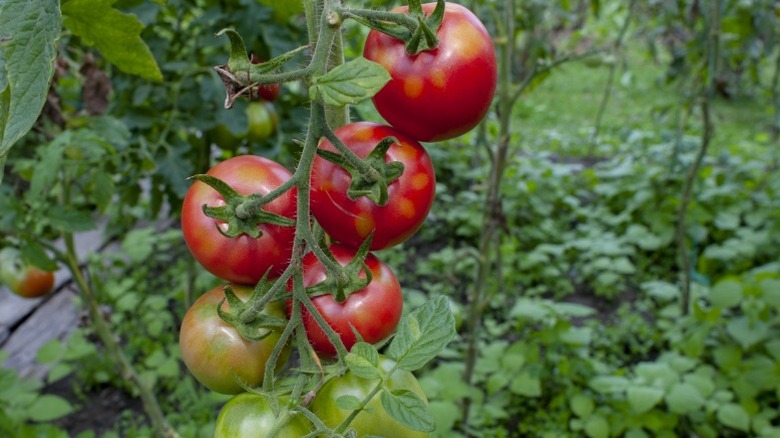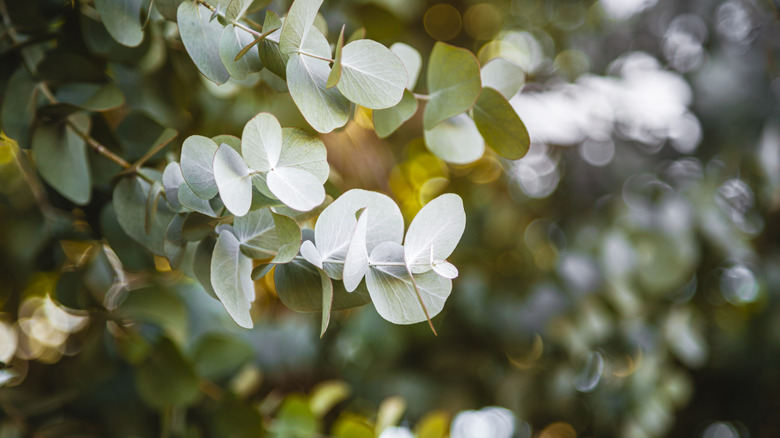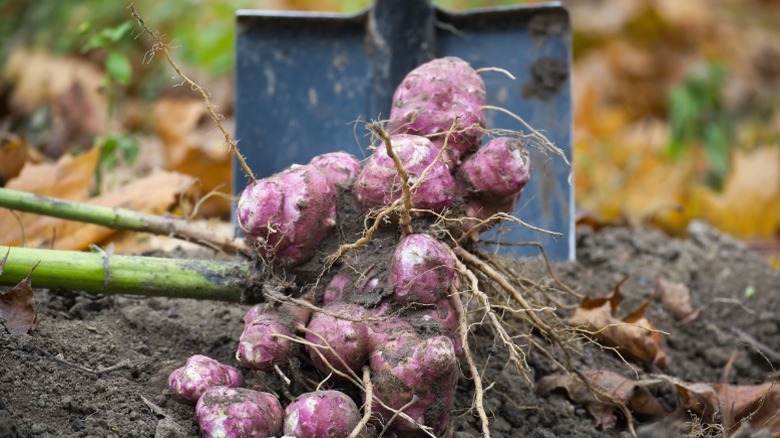11 Plants You Should Avoid Growing Near Your Cucumbers In The Garden
If you have a little bit of space free in your vegetable garden, it's simple to grow your own crisp cucumbers (Cucumis sativus). A warm-season crop, many varieties of cucumbers grow best when provided an adequate trellis system to help bolster its heavy fruit. But keeping your cucumbers happy in your garden also means separating them from certain plants. While there are benefits of matching cucumbers with corn in the garden, the same cannot be said for other species.
Some vegetables, like pumpkins and squash, attract too many of the same pests as cucumbers. And some herbs, like aromatic sage and rosemary, can impact the taste with their strong scent. Knowing which companion plants you should grow next to cucumbers in your garden – and which ones you should avoid — can help you produce bigger, better, and tastier cucumbers. If you know which plants to grow elsewhere, you can find a better way to lay out your garden. The ultimate goal is to improve your cucumber production and worry less about plants failing to thrive or being outcompeted for resources.
Potatoes
Cucumbers and potatoes are one of the worst companion plants you could grow together. In the garden, potatoes need lots of nutrients and water. It can be difficult to provide enough for both without the potato crop outcompeting the cucumber plant. Both plants are sensitive to moisture stress, which can result in poor harvests. Potatoes also have an issue with blight, specifically one caused by the fungus Phytophthora infestans. This fungus is closely related to the type of blight common in cucurbits (like cucumbers), which means growing these plants together increases the risk of spread.
Melons
Despite a popular myth that cucumbers cross-pollinate with melons, making them taste bad, this is actually impossible. It's still a good idea to keep these related plants apart from each other in the garden because cucumbers and melons take up a lot of space. Both of these plants require a large area to spread out their vines, and when you plant them too close, they will begin to overlap.
Fennel
Gardeners like to incorporate fennel into their layouts to help attract beneficial insects. But there is a tendency of fennel to release chemical compounds that could negatively impact the growth of other plants in the same area. Growing fennel too closely to cucumbers could cause issues to cucumbers if they come into contact with its allelopathic roots. The only plant that you should plant in proximity to fennel is the herb dill.
Aromatic herbs
The aromatic scents of rosemary, sage, and basil are typically a welcome smell in the garden. But you should avoid planting some popular herbs too close to cucumbers, due to negative reactions. The strong smell of these herbs can actually impact the taste of cucumbers as they develop. Plus, some herbs, like sage, have a tendency to stunt the growth of cucumbers due to chemicals released in their roots.
Squash
Although cucumbers are also members of the cucurbit family like zucchinis and pumpkins, it's best to not plant them too close in the garden. All cucurbits are susceptible to the cucumber beetle, a little yellow and black bug that transmits wilt disease. One way to keep cucumber beetles out of your garden is to not plant too many cucurbits together to prevent attracting them to all your plants.
Black walnut trees
Black walnut trees (Juglans nigra) can be a big problem due to the toxic chemical found in its roots, wood, and nuts. While cucumbers are not a member of the nightshade family, which are known to be affected by juglone toxicity, caution should be used when planting any vegetables near a black walnut tree , including cucumbers. Growing cucumbers outside the root zone of a black walnut tree is the best course of action so that their growth remains uninhibited.
Mint
Mint is a notorious herb in the garden, because of its aggressive ability to grow and overtake a space. While there are some plants that work well as companions to mint, cucumber is not one of them. You should be aware of the downsides of growing mint, which can outcompete vegetables like cucumbers by growing beyond the space you originally planted it in.
Brassicas
Vegetables in the brassica family, including broccoli, cauliflower, and cabbage, are not recommended as companions to cucumbers. The vining habits of cucumbers can encroach on brassicas, preventing them from growing very large. Plus, brassicas all require adequate moisture in the soil, which means they are always competing for the same resources as cucumbers. In addition, pests like cabbage worms, flea beetles, and aphids are attracted to broccoli and cabbage, which will also target cucumber plants.
Tomatoes
Although some gardeners indicate few issues growing tomatoes near cucumbers, there are several reasons why you shouldn't plant cucumbers and tomatoes together in the garden. The big reason is that it is very easy for the two vegetables to transmit diseases to each other. Mosaic virus, specifically Beet Curly Top Virus (BCTV), commonly affects both types of plants. If the two are planted right next to each other it is easier for the leafhopper to spread this issue from one plant to another.
Eucalyptus
Eucalyptus and cucumber often appear in the same soaps and body washes, but they don't make the best partners in the garden. Eucalyptus is the name for a group of trees and shrubs of over 700 species mostly native to Australia. Many of these plants are grown in the U.S. now, but should be kept away from your vegetable garden. Planting vegetables near the roots of eucalyptus trees and shrubs can create competition for space and nutrients.
Jerusalem artichokes
The Jerusalem artichoke (Helianthus tuberosus), also widely recognized as the sunchoke, is a perennial root plant that isn't actually related to artichokes. Sunchokes are not a recommended companion for cucumbers due to their weedy nature. Because this plant grows in a spreading manner via rhizomes, it can impede the branching surface roots that cucumbers grow to obtain moisture. Instead, plant your Jerusalem artichokes in a separate raised bed.
